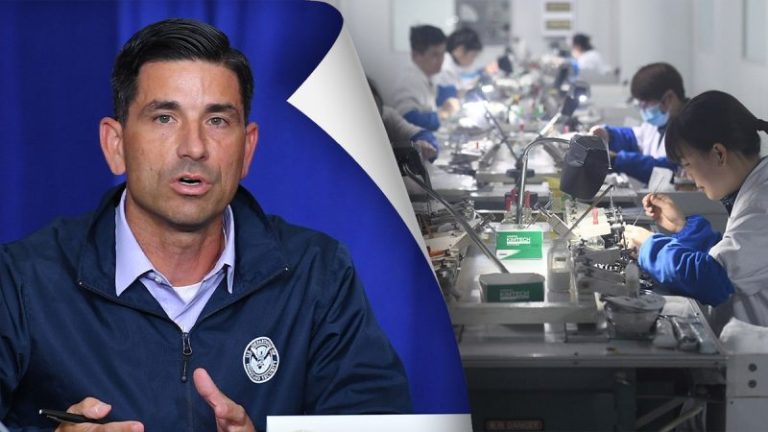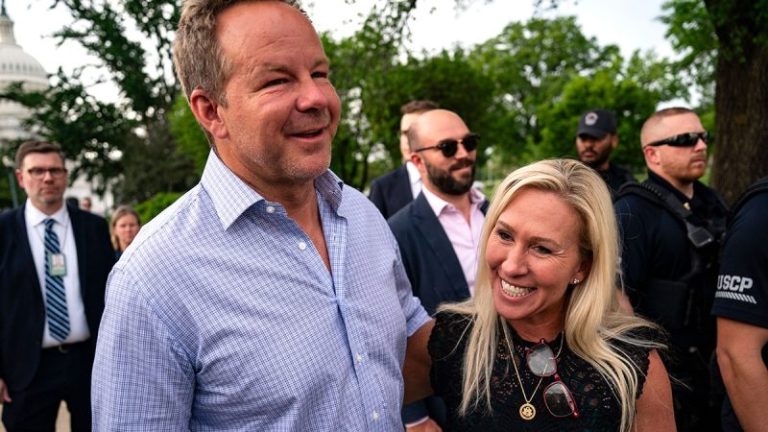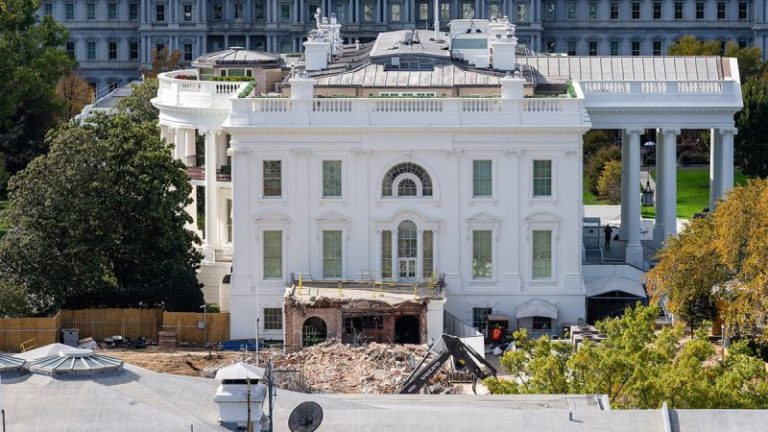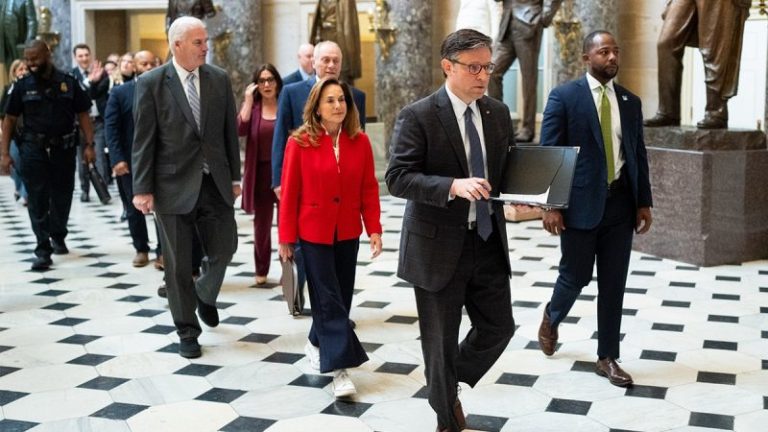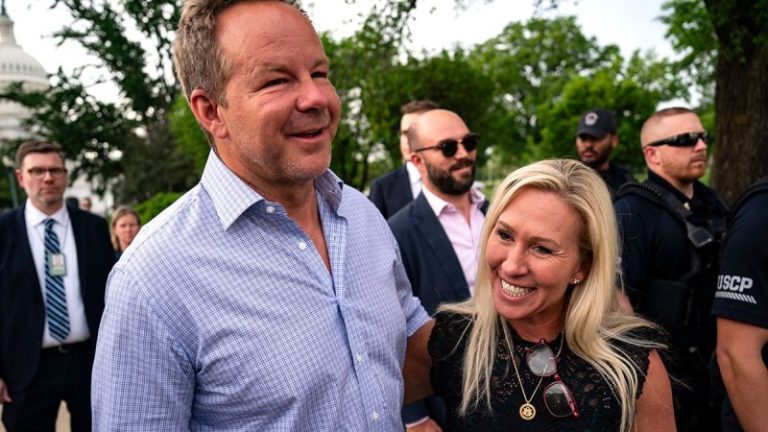China has spent decades building a land-based missile force designed to keep the United States out of a fight over Taiwan — and U.S. officials say it now threatens every major airfield, port and military installation across the Western Pacific.
As Washington races to build its own long-range fires, analysts warn that the land domain has become the most overlooked — and potentially decisive — part of the U.S.–China matchup. Interviews with military experts show a contest defined not by tanks or troop movements, but by missile ranges, base access and whether U.S. forces can survive the opening salvos of a war that may begin long before any aircraft take off.
‘The People’s Liberation Army Rocket Force … has built an increasing number of short-, medium-, and long-range missiles,’ Seth Jones of the Center for Strategic and International Studies told Fox News Digital. ‘They have the capability to shoot those across the first and increasingly the second island chains.’
For years, Chinese officials assumed they could not match the United States in air superiority. The Rocket Force became the workaround: massed, land-based firepower meant to shut down U.S. bases and keep American aircraft and ships outside the fight.
‘They didn’t think that they could gain air superiority in a straight-up air-to-air fight,’ said Eric Heginbotham, a research scientist at the Massachusetts Institute of Technology. ‘So you need another way to get missiles out — and that another way is by building a lot of ground launchers.’
The result is the world’s largest inventory of theater-range missiles, backed by hardened underground facilities, mobile launchers and rapid shoot-and-scoot tactics designed to overwhelm U.S. defenses.
Despite China’s numerical edge, American forces still hold advantages Beijing has not yet matched — particularly in targeting and survivability.
U.S. missiles, from Tomahawks to SM-6s to future hypersonic weapons, are tied into a global surveillance network the People’s Liberation Army cannot yet replicate. American targeting relies on satellites, undersea sensors, stealth drones and joint command tools matured over decades of combat experience.
‘The Chinese have not fought a war since the 1970s,’ Jones said. ‘We see lots of challenges with their ability to conduct joint operations across different services.’
The U.S., by contrast, has built multi-domain task forces in the Pacific to integrate cyber, space, electronic warfare and precision fires — a level of coordination analysts say China has yet to demonstrate.
Jones said China’s defense industry also faces major hurdles.
‘Most of (China’s defense firms) are state-owned enterprises,’ he said. ‘We see massive inefficiency, the quality of the systems … we see a lot of maintenance challenges.’
Still, the United States faces a near-term problem of its own: missile stockpiles.
‘We still right now … would run out (of long-range munitions) after roughly a week or so of conflict over, say, Taiwan,’ Jones said.
Washington is trying to close that gap by rapidly expanding production of ground-launched weapons. New Army systems — Typhon launchers, high mobility artillery rocket system, batteries, precision strike missiles and long-range hypersonic weapons with a range exceeding 2,500 kilometers — are designed to hold Chinese forces at risk from much farther away.
Heginbotham said the shift is finally happening at scale.
‘We’re buying anti-ship missiles like there’s no tomorrow,’ he said.
If current plans hold, U.S. forces will field roughly 15,000 long-range anti-ship missiles by 2035, up from about 2,500 today.
China’s missile-heavy strategy is built to overwhelm U.S. bases early in a conflict. The United States, meanwhile, relies on layered air defenses: Patriot batteries to protect airfields and logistics hubs, terminal high altitude area defense (THAAD) interceptors to engage ballistic missiles at high altitude, and Aegis-equipped destroyers that can intercept missiles far from shore.
Heginbotham warned the U.S. will need to widen that defensive mix.
‘We really need a lot more and greater variety of missile defenses and preferably cheaper missile defenses,’ he said.
One of Washington’s biggest advantages is its ability to conduct long-range strikes from beneath the ocean. U.S. submarines can fire cruise missiles from virtually anywhere in the Western Pacific, without relying on allied basing and without exposing launchers to Chinese fire — a degree of stealth China does not yet possess.
Command integration is another area where Beijing continues to struggle. American units routinely train in multi-domain operations that knit together air, sea, cyber, space and ground-based fires.
Jones and Heginbotham both noted that the People’s Liberation Army has far less experience coordinating forces across services and continues to grapple with doctrinal and organizational problems, including the dual commander–political commissar structure inside its missile brigades.
Alliances may be the most consequential difference. Japan, the Philippines, Australia and South Korea provide depth, intelligence sharing, logistics hubs and potential launch points for U.S. forces.
China has no comparable network of partners, leaving it to operate from a much narrower geographic footprint. In a missile war, accuracy, integration and survivability often matter more than sheer volume — and in those areas the United States still holds meaningful advantages.
At the heart of this competition is geography. Missiles matter less than the places they can be launched from, and China’s ability to project power beyond its coastline remains sharply constrained.
‘They’ve got big power-projection problems right now,’ Jones said. ‘They don’t have a lot of basing as you get outside of the first island chain.’
The United States faces its own version of that challenge. Long-range Army and Marine Corps fires require host-nation permission, turning diplomacy into a form of firepower.
‘It’s absolutely central,’ Heginbotham said. ‘You do need regional basing.’
Recent U.S. agreements with the Philippines, along with expanded cooperation with Japan and Australia, reflect a push to position American launchers close enough to matter without permanently stationing large ground forces there.
A U.S.–China land conflict would not involve armored columns maneuvering for territory. The decisive question is whether missile units on both sides can fire, relocate and fire again before being targeted.
China has invested heavily in survivability, dispersing its brigades across underground bunkers, tunnels and hardened sites. Many can fire and relocate within minutes. Mobile launchers, decoys and deeply buried storage complexes make them difficult to neutralize.
U.S. launchers in the Pacific would face intense Chinese surveillance and long-range missile attacks. After two decades focused on counterterrorism, the Pentagon is now reinvesting in deception, mobility and hardened infrastructure — capabilities critical to surviving the opening stages of a missile war.
Any U.S. intervention in a Taiwan conflict would also force Washington to confront a politically charged question: whether to strike missile bases on the Chinese mainland. Doing so risks escalation; avoiding it carries operational costs.
‘Yes … you can defend Taiwan without striking bases inside China,’ Heginbotham said. ‘But you are giving away a significant advantage.’
Holding back may help prevent the conflict from widening, but it also allows China to keep firing.
‘It’s a reality of conflict in the nuclear age that almost any conflict is gonna be limited in some ways,’ Heginbotham said. ‘Then the question becomes where those boundaries are drawn, can you prevent it from spreading? What trade-offs you’re willing to accept?’
A U.S.–China clash on land would not be fought by massed armies. It would be a missile war shaped by geography, alliances and survivability — a contest where political access and command integration matter as much as raw firepower.
For the United States, the challenge is clear: build enough long-range missiles, secure the basing needed to use them and keep launchers alive under fire. For China, the question is whether its vast missile arsenal and continental depth can offset weaknesses in coordination, command structure and real-world combat experience.
The side that can shoot, relocate and sustain fire the longest will control the land domain — and may shape the outcome of a war in the Pacific.
This is the third installment of a series comparing U.S. and Chinese military capabilities. Feel free to check out earlier stories comparing sea and air capabilities.
This post appeared first on FOX NEWS

